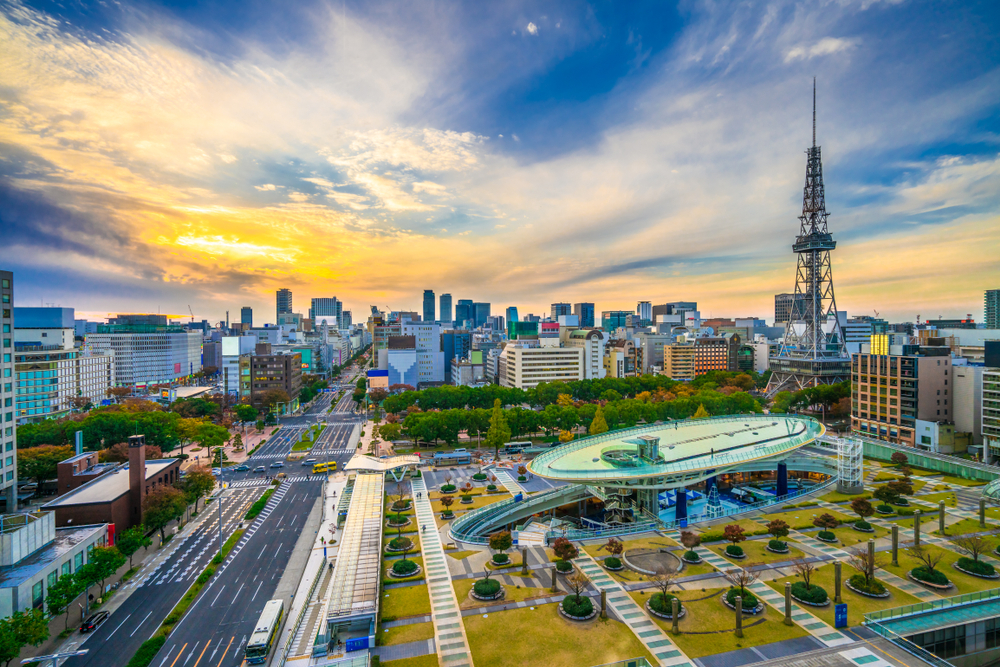Shop and office vacancy rates rise in Nagoya
Large-scale redevelopment plans also hit a downturn

According to The Japan Times, Nagoya’s central district is experiencing a rise in vacant stores and offices as the pandemic has resulted in more teleworking and almost no tourists.
Tsuruha Co., a major Sapporo-based drugstore operator, had a flagship store in Nagoya’s Sakae area for overseas tourists. However, after the implementation of entry bans, the company had to shut down the outlet in mid-May, together with 15 other stores in other cities including Osaka, Kyoto, and Kobe.
The store, on the ground floor of a building in a prime downtown location, has remained vacant ever since. An official from the local real estate industry explained that “the tenant (Tsuhara) closed the store with a yearly contract left and keeps paying the high rent set before the pandemic. The firm must have judged that if it can’t expect inbound-related sales, it will suffer less damage (closing the outlet) rather than keeping the store open and having the staff there.”
Newly opened shopping complexes are also facing difficulties, such as Rayard Hisaya-odori Park that recently opened in September in a redeveloped park in Sakae, as well as Bino Sakae in central Sakae.
Noriyuki Kawamoto, director of Tokyo-based commercial real estate services firm CBRE K.K.’s Nagoya office, said, “since tenants have to invest tens of millions of yens for interior work to open a store in a complex, it is not worth doing it unless they can make a solid profit.”
“Since it is difficult to make sales forecasts amid the COVID-19 pandemic, few companies are willing to become tenants and pay a large amount of rent,” he added.
The uncertainty of demand for shop spaces pours challenges on large-scale urban redevelopment projects, as well.
Nagoya Railroad Co. announced in November to delay the joint project of constructing a gigantic building south of Nagoya Station, and instead start on fiscal 2022.
Office buildings where people of Nagoya and other cities commute to are also being hit by the spread of COVID-19 infections.
As stated by office brokerage Miki Shoji Co., the average office vacancy rate in Nagoya’s business districts prior to the pandemic was 1.91 percent, but has now jumped to 3.67 percent as of November 2020.
The increase in office vacancy can be pinned on the fact that many companies are reducing office space as teleworking becomes more common.
The housing and apartment industry is adapting to better suit the current situation.
More: Japan encourages migration out of Tokyo via home ownership
Avantia, a Nagoya-based housing manufacturer, began selling built-for-sale houses with workspace for teleworkers.
Ken Nakamura, manager of the firm’s Nagoya Higashi branch, mentioned that “the area is popular among workers of trading firms and major firms in the Toyota group who commute to central Nagoya. Customers asking for a teleworking space undoubtedly increased.”
Osaka-based Kintetsu Real Estate Co. says its new 21-story apartment building on sale in Sakae has a telework lounge with individual booths.
“Being able to secure the most appropriate teleworking space within the grounds will become the new standard for an apartment life,” added a Kintetsu Real Estate official.
Recommended
Why everyone is moving to Selangor and Johor: Malaysia’s real estate comeback
Malaysia’s upturn in fortunes is especially prevalent in secondary destinations such as Selangor and Johor
Penang’s silicon boom: How the US-China tech war is supercharging local real estate
Penang’s booming semiconductor industry has created ripples within the local real estate sector
New leader, new opportunities: How Hun Manet is shaking up Cambodia’s real estate game
Hun Manet is overseeing decent economic growth and widening access to the country’s real estate market for foreigners
Singapore embraces inclusive housing reforms amid resilient demand
The Lion City’s regulatory strength continues to exert appeal for international investors








